Alberta
Canadian federal court overturns Trudeau gov’t ban on single-use plastics

From LifeSiteNews
The Federal Court ruled in favor of the provinces of Alberta and Saskatchewan, declaring that Prime Minister Justin Trudeau’s government overstepped its authority by classifying plastic as ‘toxic’ and banning all single-use plastic items, like straws
The Federal Court of Canada has overturned the Trudeau government’s ban on single-use plastic, calling it “unreasonable and unconstitutional.”
On November 16, the Federal Court ruled in favor of the provinces of Alberta and Saskatchewan, declaring that Prime Minister Justin Trudeau’s government overstepped its authority by classifying plastic as “toxic” and banning all single-use plastic items, like straws.
“There is no reasonable apprehension that all listed PMI [Plastic Manufactured Items] are harmful,” the decision read.
The decision came after a lawsuit filed a little over a year ago by Alberta and Saskatchewan. The ruling declared that listing all plastics on the List of Toxic Substances was too broad and “poses a threat to the balance of federalism as it does not restrict regulation to only those (plastics) that truly have the potential to cause harm to the environment.”
The court further reminded the Trudeau federal government of the autonomy of the provinces, saying, “Cooperative federalism recognizes that the provincial government and federal government are coordinate – the provinces are not subordinate to the federal government. A federal head of power cannot be given a scope that would eviscerate a provincial legislative competence.”
Essentially, the ruling overturned Trudeau’s 2022 law which outlawed manufacturing or importing plastic straws, cutlery, and checkout bags on the grounds of government claims that plastic was having a negative effect on the oceans. In reality, most plastic pollution in the oceans comes from a few countries, like India and China, which dump waste directly on beaches or rivers.
If not for the Federal Court’s ruling, the sale of these plastic products would have also been illegal by the end of this year.
RELATED: Trudeau gov’t-mandated paper straws may be worse for environment than plastic, study finds
The Government of Canada had estimated the average Canadian would pay at least $50 each in the higher costs for alternatives to traditional plastic products. Meanwhile, an August study revealed that paper straws may have a worse impact on humans and the environment than standard plastic straws as they contain “forever chemicals” which take thousands of years to break down.
Alberta Premier Danielle Smith celebrated the Court’s decision, saying, “Alberta wins again – Federal Court says Liberal plastic ban ‘both unreasonable and unconstitutional.’”
Smith compared the ruling to the Supreme Court’s recent announcement that Bill C-69, dubbed the “no-more pipelines” bill, is “mostly unconstitutional.” The decision returned jurisdiction over the pipelines to provincial governments.
“Like Bill C-69, the federal government’s decision to unilaterally label perfectly safe plastic consumer products as ‘toxic’ has had wide-ranging consequences for Alberta’s economic interests and has put thousands of jobs and billions of investments at risk,” Smith explained.
“It’s time for the federal government to listen to the courts and to Canadians,” she added. “We urge them to not appeal this decision, and to immediately delete ‘plastic manufactured items’ from Schedule 1 of the current Canadian Environmental Protection Act so as to avoid further need of legal action by Alberta and other provinces.”
Smith’s request comes as Environment Minister Steven Guilbeault announced Thursday that the federal government is “strongly considering an appeal” of the decision.
“Canadians have been loud and clear that they want action to keep plastic out of our environment,” he claimed. “We will have more to say on next steps soon.”
While Guilbeault attests that Canadians have been “loud and clear” in their desire to eliminate plastic, he is seemingly ignoring the growing number of Canadians calling for the Trudeau government to be replaced.
According to a November survey by Abacus Data, 84% of Canadians want a change in government, leaving only 16% of Canadians content with Trudeau and his Liberal government.
Alberta
30 million contraband cigarettes valued at $25 million dollars seized in Alberta
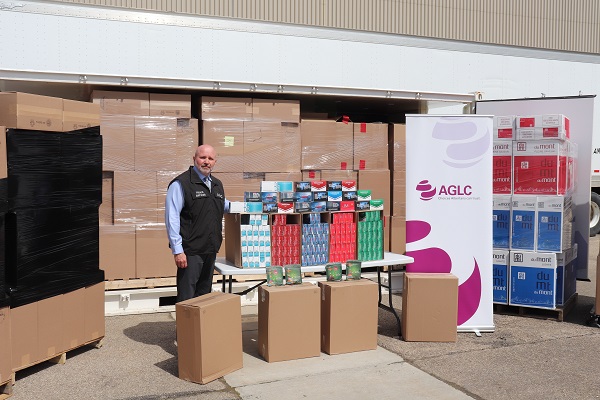
New release from Alberta Gaming Liquor and Cannabis (AGLC)
Record setting contraband tobacco seizures result from AGLC investigations
Alberta Gaming Liquor and Cannabis (AGLC) recently concluded several investigations which netted two of the largest contraband tobacco seizures in Alberta history. The combined total of the contraband tobacco seized was 154,800 cartons of contraband cigarettes (30.7 million individual cigarettes). These seizures are a result of the work conducted by AGLC’s Tobacco Enforcement Unit with the assistance of provincial law enforcement agencies.
- In a January 2024 investigation, approximately 43,500 cartons (8.7 million individual cigarettes) were seized. This equates to $7 million in retail value with a provincial tax avoidance of $2.4 million. This included the seizure of 15,000 grams of contraband shisha.
- In April of 2024, 60 wrapped pallets were seized from a warehouse setting netting a total of 111,300 cartons of contraband cigarettes (22 million individual cigarettes) which equates to over $18 million in retail value with a provincial tax avoidance of $6.6 million.
- Criminal Charges are pending in both cases.
“These are significant contraband tobacco investigations involving individuals that are part of organized networks whose proceeds defraud Albertans millions of dollars in tax revenue. AGLC will continue to work with our partners to investigate and disrupt the individuals and organizations involved in these illegal activities as part our commitment to a strong contraband tobacco enforcement program in Alberta.”
- Gary Peck, Vice President, Regulatory Services, AGLC
“Contraband tobacco hurts law abiding businesses that follow the rules, and it costs Albertans millions each year from lost tax revenue. Our government is committed to keeping illegal tobacco off the streets and ensuring that the sale of tobacco products comply with the law.”
- Dale Nally, Minister of Service Alberta and Red Tape Reduction
Over the last nine months, AGLC’s Tobacco Enforcement unit has seized an estimated 35 million contraband cigarettes and 115,000 grams of contraband shisha from across the province. The total potential lost tax revenue is estimated to be more than $10.1 million.
Contraband tobacco:
- is any tobacco product that does not comply with federal and provincial laws related to importation, marking, manufacturing, stamping and payment of duties and taxes;
- comes from four main sources: illegal manufacturers, counterfeits, tax-exempt diversions and resale of stolen legal tobacco; and
- can be recognized by the absence of a red (Alberta) or peach/light tan (Canada) stamp bearing the “DUTY PAID CANADA DROIT ACQUITTÉ” on packages of cigarettes and cigars or pouches of tobacco.
In addition to lost revenues that may otherwise benefit Albertans, illegally manufactured products also pose public health and safety risks as they lack regulatory controls and inspections oversight.
Albertans who suspect illegal tobacco production, packaging and/or trafficking are encouraged to contact AGLC’s Tobacco Enforcement Unit at 1-800-577-2522 or Crime Stoppers at 1-800-222-TIPS (8477).
Under a Memorandum of Understanding with Alberta Treasury Board and Finance, AGLC enforces the Tobacco Tax Act and conducts criminal investigations related to the possession, distribution and trafficking of contraband tobacco products. In 2022-23, provincial revenue from tobacco taxes was approximately $522 million.
Alberta
Pharmacist-led clinics improve access to health care: Lessons from Alberta

News release from the Montreal Economic Institute
In Canada, 35 per cent of avoidable emergency room visits could be handled by pharmacists.
Emulating Alberta’s pharmacist-led clinic model could enhance access to primary care and help avoid unnecessary emergency room visits, according to a new study from the Montreal Economic Institute.
“Pharmacists know medication better than anyone else in our health systems,” explains Krystle Wittevrongel, senior public policy analyst and Alberta project lead at the MEI. “By unlocking their full potential in prescribing and substituting medications, Alberta’s pharmacist-led clinics have helped avoid tens of thousands of unnecessary emergency room visits.”
Pharmacists in Alberta have the largest prescribing authority in the country, including the ability to prescribe schedule one drugs with special training.
Unlike in Ontario and Manitoba, Alberta pharmacists are authorized to substitute prescribed medications, which can help address issues such as adverse reactions caused by interaction with other treatments.
The study explains that this can help reduce pressure on hospitals, as prescription-related issues account for more than 10 per cent of emergency room visits.
Alberta’s first pharmacist-led clinic, in Lethbridge, sees between 14,600 and 21,900 patients per year since opening in 2022.
It is expected that there will be 103 such clinics active in the province by the end of 2024.
The researcher also links the success of the pharmacist-led clinic model in Alberta to pharmacists’ expanded scope of practice in the province.
Among other things, Alberta pharmacists are able to order and interpret lab tests, unlike their counterparts in British Columbia, Ontario, and Newfoundland and Labrador.
A 2019 peer-reviewed study found that pharmacists could handle 35 per cent of avoidable emergency room visits in Canada.
“By enabling pharmacists to play a larger role in its health system, Alberta is redirecting minor cases from emergency rooms to more appropriate facilities,” said Wittevrongel. “Just imagine how much faster things could be if pharmacists could take care of 35 per cent of the unnecessary load placed on Canada’s emergency rooms.”
The MEI study is available here.
* * *
The MEI is an independent public policy think tank with offices in Montreal and Calgary. Through its publications, media appearances, and advisory services to policy-makers, the MEI stimulates public policy debate and reforms based on sound economics and entrepreneurship.
-

 City of Red Deer2 days ago
City of Red Deer2 days agoCity Council paving the way for more house suites, backyard suites, tiny homes, and duplexes
-

 Uncategorized1 day ago
Uncategorized1 day agoRCMP recruitment failure has Alberta advocacy group calling for Provincial Police Service
-

 Automotive8 hours ago
Automotive8 hours agoGovernments in Canada accelerate EV ‘investments’ as automakers reverse course
-

 COVID-1919 hours ago
COVID-1919 hours agoJapan’s most senior cancer doctor: COVID shots are ‘essentially murder’
-
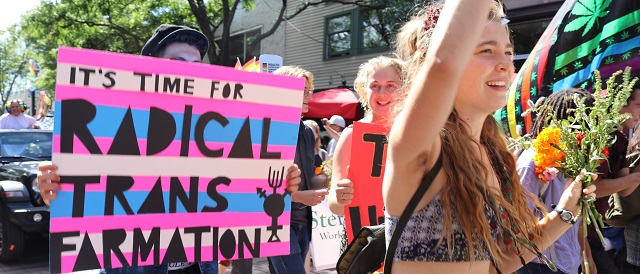
 Health1 day ago
Health1 day agoPrivate Footage Reveals Leading Medical Org’s Efforts To ‘Normalize’ Gender Ideology
-
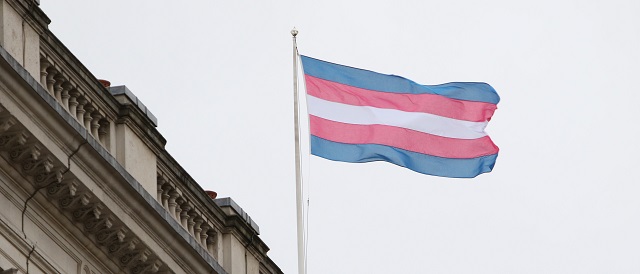
 Health1 day ago
Health1 day agoTHE WPATH TAPES: Behind-The-Scenes Recordings Reveal What Top Gender Doctors Really Think About Sex Change Procedures
-
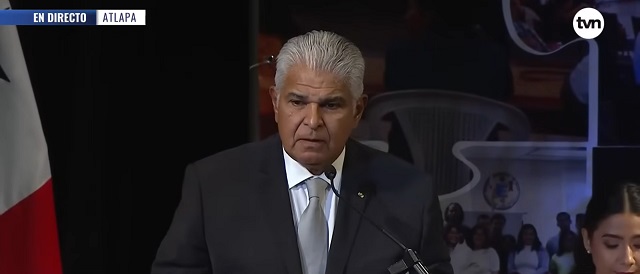
 illegal immigration2 days ago
illegal immigration2 days agoPanama’s Incoming President Wants To Shut Down His Country’s Most Treacherous Route For Migrants — But Will It Work?
-
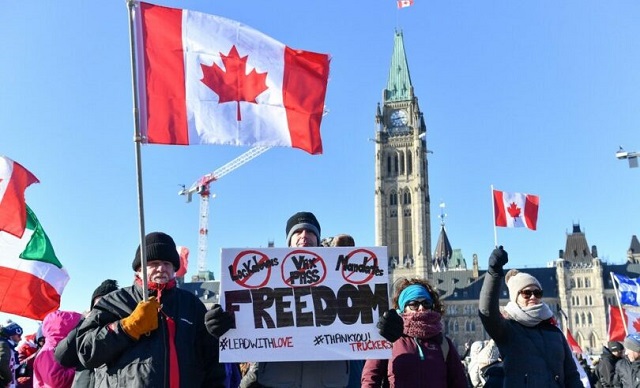
 COVID-191 day ago
COVID-191 day agoTrudeau government only sought legal advice after Emergencies Act was invoked, records indicate






